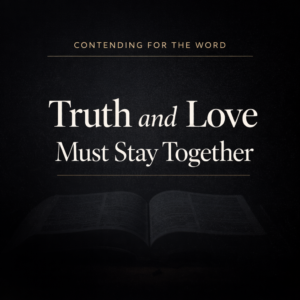⏱️ Estimated Reading Time: 5 min read
 What is worship? Is it the raising of our voices in song during a church service or gathering of believers or is worship far more than just a once or twice a week occurrence? If worship is more than just singing songs, then what does Scripture say about what praising almighty God is all about, not just from a theological angle, but also as part of our everyday practice? Timothy Pierce, in his excellent book on worship titled Enthroned on Our Praise: An Old Testament Theology of Worship, takes the reader on an in-depth journey to what God has outlined in the Old Testament regarding what He expects worship to look like in our lives.
What is worship? Is it the raising of our voices in song during a church service or gathering of believers or is worship far more than just a once or twice a week occurrence? If worship is more than just singing songs, then what does Scripture say about what praising almighty God is all about, not just from a theological angle, but also as part of our everyday practice? Timothy Pierce, in his excellent book on worship titled Enthroned on Our Praise: An Old Testament Theology of Worship, takes the reader on an in-depth journey to what God has outlined in the Old Testament regarding what He expects worship to look like in our lives.
This book is part of the excellent New American Commentary Studies in Bible & Theology and as such, continues the strong tradition found in this series of salient biblical scholarship and most importantly, the application of the subject at hand to the Christian walk. Pierce aptly notes, “A fundamental thirst has awakened in people to recognize someone who is bigger than they are, to relate to Him in a personal way and to experience community with like-minded individuals in the process.” This yearning demonstrates that many are realizing what we were created for, namely to glorify God and to have relationship with our Creator. An integral part of glorifying God and having that needed personal and intimate relationship with God is through the act of worship.
One may ask why Pierce does not provide a theology of worship that engages both Old and New Testaments. He answers this question by aptly commenting, “it can instill, in some small way, a greater appreciation of the OT in the hearts and minds of today’s church leaders.” Second, Pierce correctly states “the God of the OT is the same God we serve today. The OT presentation of His story transmits a relational vividness and attitude that fills in the gaps about who He is and what He desires in ways that even the NT writers themselves appreciated and recognized.” Essentially, Pierce is reminding the reader and the Body of Christ at large that to understand worship and to have a cogent and holistic perspective on this aspect of relationship with our Creator, we had best begin with the front of the Bible, and the foundation of worship it presents.
Pierce rightly begins his treatise on worship with the act of creation, discussing all the various elements subsumed in that act that relate to our worship and relationship with our Creator. This is the very foundation of Scripture, namely the reality that “the primary relationship of God to humanity expresses a connectedness that is both patent and unexpected.” As one journeys through Scripture, they find that which Pierce so expertly states, the fact that “it is this relationship that defines the direction of history and theology. And it is this relationship that moves the tension of the narratives.”
The salient discussion of worship is next directed at the Pentateuch, followed by an examination of worship in the writings of the Prophets, both former and later, and finally Pierce engages the beautiful prose of worship found in the writings such as the book of Psalms, a book replete with songs extolling the majesty of God and demonstrating the repeated pattern and concept of man’s relationship to his Creator.
While many may gravitate towards the section on the Writings and their commentary on worship, I was most drawn to Pierce’s analysis of worship within the Pentateuch. Far too often the manner in which God is expressed and demanded He be worshiped through the various sacrifices and for instance the Sabbath are often overlooked as something completely irrelevant and unrelated to our lives today as believers. After all, we do not conduct animal sacrifices anymore and who wants to get into that argument over when the Sabbath should be observed. Much can be learned in relation to the needed element of relationship in regards to worship by examining God’s commands regarding Sabbath rest. As Pierce so aptly states, “What is so intriguing about sacred times is that not only is God’s activity sanctified and descriptive of a relationship, but so is His rest. There is nothing about Him that does not call humanity to a recognition of His presence and, therefore, to their need to worship Him.” Understanding the purpose and focus of the Sabbath, as Pierce so brilliantly comments is fact that “the Sabbath pulls humanity out of its self-interest and striving.” Conversely, it focuses the created on the Creator in an attitude of humility, dependence, and worship.
Those desiring to understand what the OT has to say about worship and why it is important should most certainly pick up this book and give it a thorough read. I highly recommend it for all believers who desire to grow closer to their Creator. Since we should all have that desire, then that means this book is for everyone to consider. Pierce rightly focuses his attention on the front of the book, building that necessary foundation for those wanting to them explore what the NT has to say on worship. Those who take the time to examine the many truths Pierce explores in this book will find themselves better focused on worshiping God and understanding why worship is a foundational for relationship with their Creator.
This book is available for purchase from B&H Academic by clicking here.
I received this book for free from B&H Academic for this review. I was not required to write a positive review. The opinions I have expressed are my own. I am disclosing this in accordance with the Federal Trade Commission’s 16 CFR, Part 255 : “Guides Concerning the Use of Endorsements and Testimonials in Advertising.”




